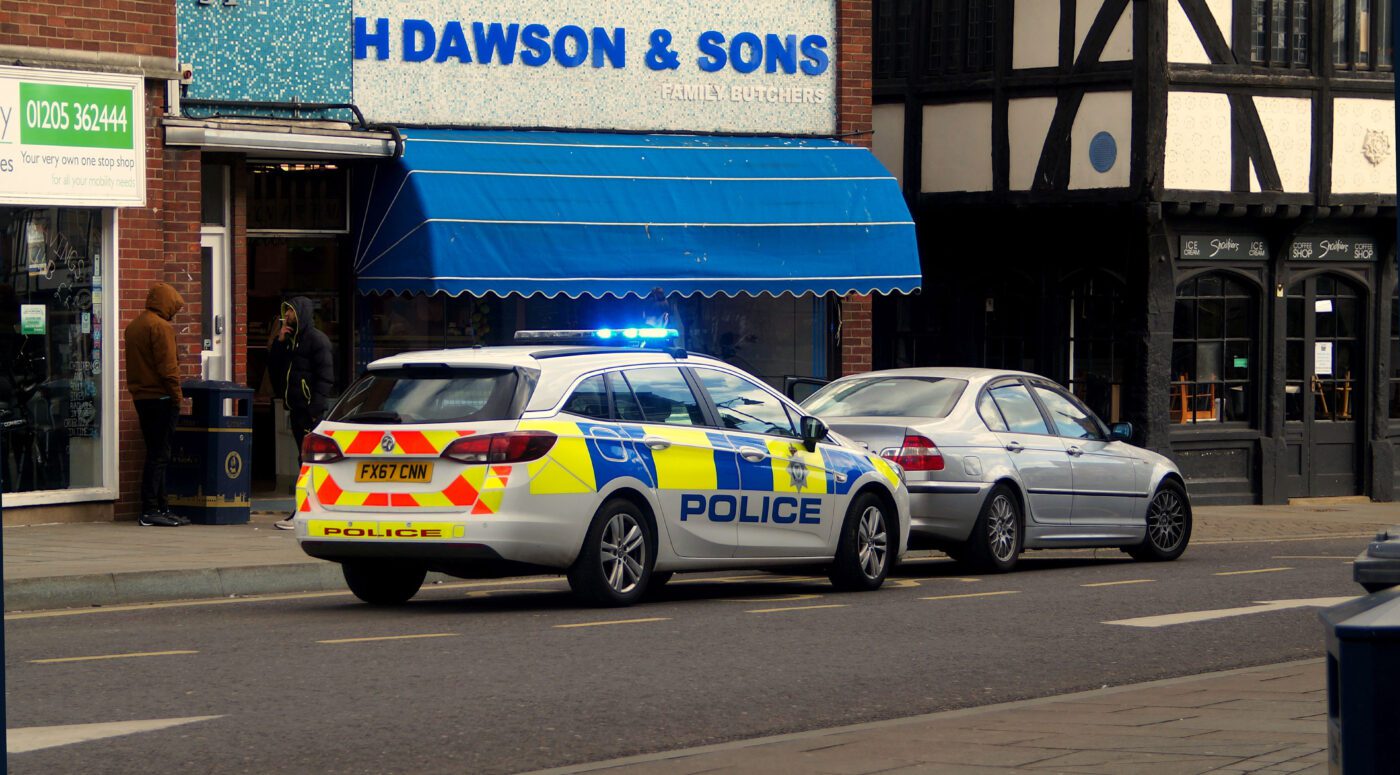

If you or someone close to you is facing a charge of death by dangerous driving, it is natural to feel overwhelmed and concerned. This is a grave offence with significant consequences, making it absolutely vital to seek advice from a trusted criminal defence solicitor who specialises in death by dangerous driving as soon as possible. Expert legal assistance can be crucial in potentially mitigating any penalties, including prison time. This article aims to provide an overview of what constitutes death by dangerous driving, outline the maximum potential sentences, delve into key points from the sentencing guidelines, and explain how a solicitor can help reduce your sentence.
What is the offence of death by dangerous driving?
The offence of death by dangerous driving in England is a serious criminal act where an individual’s driving causes the death of another person. This offence is primarily governed by the Road Traffic Act 1988, particularly under Section 1. Additionally, amendments and guidelines can be found in later acts and statutory instruments influencing road safety laws.
To secure a conviction for death by dangerous driving, the prosecution must prove specific elements beyond a reasonable doubt.
- Firstly, they must demonstrate that the accused was driving a vehicle on a road or public place.
- Secondly, they need to establish that the driving was dangerous, meaning it fell below the standard expected of a competent and careful driver and that it would be obvious to a competent and careful driver that the driving manner was dangerous.
- Thirdly, the prosecution must show a causal link between the dangerous driving and the victim’s death. The act of driving dangerously must be a substantial cause of the fatality.
Examples of death by dangerous driving include:
- Driving at excessively high speeds far above the legal limit, resulting in a fatal collision.
- Overtaking on a bend or at a place where visibility is restricted, leading to a head-on collision.
- Operating a vehicle under the influence of drugs or alcohol and causing a deadly accident.
- Using a mobile phone for texting or making calls without a hands-free device, leading to a loss of control and a fatal crash.
- Racing another vehicle on public roads and causing a fatal injury to a pedestrian or another motorist.
- Driving a vehicle that is known to be mechanically unsound or defective, leading to a failure and a fatal accident.
- Aggressively tailgating another vehicle, causing a multi-vehicle collision with fatalities.
- Running a red light or stop sign at a junction and colliding fatally with another road user.
- Failing to heed road signs or warnings and driving onto a railway level crossing during a train’s approach, leading to a fatal crash.
- Deliberately driving towards another person with the intent to intimidate or scare them, resulting in them getting struck and killed.
These examples reflect scenarios where the dangerous actions of the driver unequivocally contribute to the tragic outcome of someone losing their life.
What is the maximum sentence for death by dangerous driving?
In England and Wales, the maximum sentence for causing death by dangerous driving is 14 years’ imprisonment. This offence is taken very seriously and the sentencing reflects the gravity of taking a life through dangerous conduct on the roads.
According to the Sentencing Council guidelines, factors that contribute to the sentencing decision include the level of culpability of the offender and the harm caused. The guidelines detail different categories based on the driver’s level of responsibility and the specific circumstances of the incident.
Aggravating factors such as previous convictions, alcohol or drug impairment, and reckless driving can lead to a higher sentence within the maximum limit. On the other hand, mitigating factors such as an early guilty plea or remorse shown by the offender can result in a reduced sentence.
Note that, in addition to the custodial sentence, a mandatory minimum driving disqualification of two years applies, and the driver must pass an extended retest before regaining their licence.
What factors influence the sentencing of death by dangerous driving?
Several factors influence sentencing for death by dangerous driving, governed by Sentencing Council guidance.
As mentioned, judges consider both aggravating and mitigating factors to determine an appropriate sentence.
- Aggravating factors include the level of culpability and harm caused. High culpability may involve excessive speed, aggressive driving, or racing with other vehicles. Driving under the influence of drugs or alcohol, using a mobile phone, or other distractions also increase culpability. Other aggravating factors comprise previous driving offences, disregard for warnings or signs, poor driving record, and multiple fatalities or injuries resulting from the incident.
- Mitigating factors, on the other hand, can lessen the severity of the sentence. These may include the driver’s remorse and steps taken to assist the victim immediately following the incident. Other mitigating circumstances might be a good driving record, the absence of previous convictions, and the suggestion that the driver’s actions were out of character. The involvement of the victim in contributing to the accident or any indirect causative factors may also mitigate the sentence. Circumstances where the driver has a mental disorder or is of particularly young age can also be considered.
In addition to these factors, judges must take into account the intended sentencing range for death by dangerous driving, typically resulting in substantial prison time as mandated by law. The aim is to ensure consistency and fairness in delivering sentences, reflecting society’s expectations and the gravity of the offence.
How can a solicitor help with reducing the sentence for death by dangerous driving?
A solicitor can play a crucial role in helping to reduce the sentence for someone charged with death by dangerous driving by employing various legal strategies and ensuring that the defendant’s case is presented in the best possible light.
- Firstly, a solicitor can provide expert legal advice on the strength of the evidence against the accused and the potential defences available. They can scrutinise the details of the case, identify any procedural errors or weaknesses in the prosecution’s argument, and challenge the admissibility of certain evidence.
- Secondly, a solicitor can negotiate with the prosecution to possibly reduce the charges or seek a plea bargain. A well-negotiated plea can result in a lesser charge or a reduced sentence. They can also gather and present mitigating evidence that may persuade the court to impose a more lenient sentence, such as the defendant’s remorse, previous good character, and any personal circumstances that might have contributed to the incident.
Choosing the right solicitor is essential. When selecting a solicitor for a case involving death by dangerous driving, one should look for experience and expertise in criminal defence, particularly in traffic offences. It is critical that you find a solicitor who has a successful track record in handling similar cases and who is known for their strategic approach and persuasive skills in court.
When you first meet a solicitor, you can expect a thorough initial consultation where the solicitor will review the facts of the case, assess the best course of action, and explain the potential outcomes. During this meeting, the solicitor will likely ask detailed questions about the incident, gather information about any witnesses, and discuss any prior criminal history. They will also inform you about the legal process, potential defences, and the likely timeline for your case. It is an opportunity to build trust, so be prepared to provide honest and detailed responses to ensure they can construct a strong defence on your behalf.
Where to get more help
If you have concerns regarding the potential sentence for causing death by dangerous driving, you are not alone. It is undoubtedly a distressing matter, and solicitors are accustomed to assisting individuals navigate the complexities of sentencing. For support and guidance on sentencing and other matters related to the offence of causing death by dangerous driving, contact the team at Stuart Miller Solicitors today. Our approachable staff possess the experience required to help you through these challenging next steps.
OUR COMMITMENTS TO YOU:
-
Responsive
A legal expert will consult you within 24 hours of making an enquiry.
-
Empathetic
We will always treat you with trust, understanding and respect.
-
Specialised
Your case will be handled by an expert who specialises in your type of offence.
-
Proactive
We will take early action to end proceedings as soon as it is practically and legally possible to do so.
-
Engaged
You will be kept updated on your case at all times. We will provide a named contact available to answer your questions.
-
Caring
We understand this is a difficult and stressful time for you and your family. Our team will support you every step of the way.
-
Tenacious
We will never give up on your case. We fight tirelessly to get you the best possible outcome.

